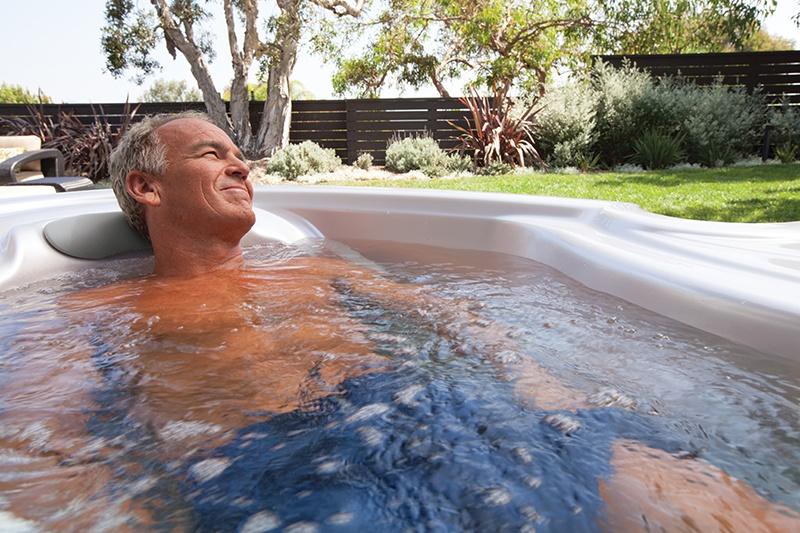Hot tub therapy offers a soothing and therapeutic experience that combines warmth and hydrotherapy to promote relaxation, alleviate stress, and ease muscle tension. Immersing yourself in warm water can help improve circulation, reduce inflammation, and relieve chronic pain or muscle soreness. The water’s buoyancy eases joint pressure, making it an excellent choice for people with arthritis or other mobility problems. Apart from its physical advantages, taking a dip in a hot tub can improve one’s mental health by providing a tranquil setting for relaxation and stress relief after a long day. Whether used for relaxation or recovery, this form of therapy can be an integral part of a wellness routine, and exploring options like Viking spas in Salt Lake City can deepen your understanding of its benefits.
Physical Health Benefits
The warmth and buoyancy of hot tub water can do wonders for your body. Evidence suggests that hydrotherapy can aid in recovery from injuries and reduce symptoms of chronic conditions like arthritis. The hot water promotes blood flow, which eases achy joints and hastens muscle healing.
Pain Relief
Hot tubs can significantly reduce chronic pain. The heat relaxes muscles and dilates blood vessels, improving blood flow and reducing inflammation. According to the Arthritis Foundation, soaking in warm water, especially for people with arthritis, temporarily decreases pain and increases joint mobility. The buoyancy of the water also takes the weight off your joints, allowing for more relaxed and pain-free movement. This makes hot tubs an excellent choice for anyone with rheumatoid arthritis, osteoarthritis, or general joint pain.
Improved Circulation
Soaking hot water can improve circulation, helping lower blood pressure and promote cardiovascular health. The hydrostatic pressure exerted by water on the body aids blood flow, which can be particularly beneficial for those with circulatory issues. Better circulation also facilitates speedier healing and general health by supplying oxygen and nutrients to your muscles and tissues more effectively. As a result, using a hot tub regularly can help maintain and enhance cardiovascular health.
Mental Health Improvements
Beyond physical benefits, hot tubs also offer various mental health advantages. The calming effect of warm water helps to reduce stress and anxiety. Some studies show that spending time in a hot tub can significantly improve mental well-being and promote better sleep. As you soak in the hot water, your body releases endorphins, natural chemicals that promote well-being and happiness. Those who regularly cope with high levels of stress or anxiety may find this to be especially helpful.
Stress Relief
Immersing yourself in a hot tub can significantly reduce stress levels. Warm water and massaging jets can create a tranquil environment that helps lower cortisol levels, the stress hormone. This, in turn, can improve your overall mood and mental well-being. The physical relaxation induced by the hot tub creates a mental relaxation effect, helping you to let go of the worries and anxieties of the day. Regular hot tub use can eventually result in a more stress-free and relaxed lifestyle.
Better Sleep
Hot tubs can also promote better sleep. The relaxation provided by warm water helps to prepare your body for rest. Your body temperature increases when you soak in a hot tub, and the ensuing cooling-off phase may tell your body it’s time to sleep. Many people discover that taking a soak before bed speeds up their sleep and increases its rejuvenating effects. The improved blood circulation, reduced muscle tension, and overall relaxation can all contribute to a better night’s sleep, making hot tubs an excellent addition to your bedtime routine.
Guidelines for Safe Usage
While hot tubs offer various benefits, following safety guidelines to maximize the experience is crucial. Keep water temperatures at a safe level, usually between 100°F to 104°F. Ensure you’re hydrated and avoid soaking for more than 15-20 minutes to prevent dehydration or overheating.
Temperature Control
For safety, keeping the water at the proper temperature when using a hot tub is crucial. Too hot water can lead to overheating and dehydration, while too cool water won’t provide the same therapeutic benefits. Continuously monitor the water temperature and adjust it as necessary. If you’ve never used a hot tub before, it’s best to start at a lower temperature and increase it gradually as you become used to the heat.
Hydration
It’s easy to become dehydrated while soaking in a hot tub. Keep a bottle of water nearby and take regular sips to stay hydrated. Avoid consuming alcohol while in the hot tub, as it can increase the risk of dehydration and overheating. Regularly check the water chemistry to maintain optimal pH levels, as balanced water will be less likely to dehydrate your skin.
Choosing the Right Hot Tub
Choosing the right hot tub can be overwhelming with the variety of options available. There are many things to consider, such as dimensions and the number of seats, as well as amenities like illumination, temperature control, and jets. It’s essential to assess your needs, such as how many people will use the tub and what type of hydrotherapy you seek. Budget, energy efficiency, and space limitations should also be considered. By carefully weighing these factors, you may select a hot tub that complements your style of living and offers the relaxation and health advantages you seek.


